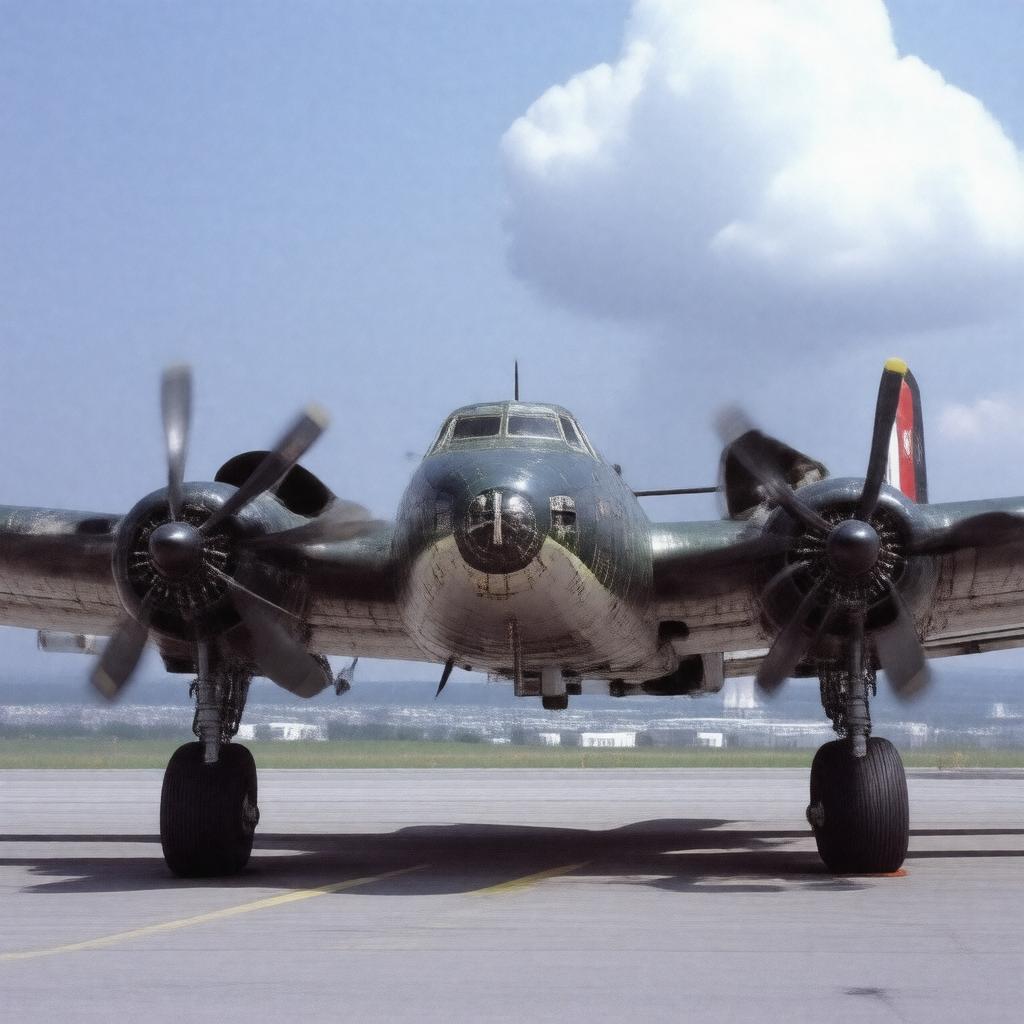Prompt
Generate an image of a B-29 bomber aircraft, specifically Bockscar, with its distinctive features and markings, standing on a runway or displayed in a museum setting, with a subtle background that hints at its significant role in history, such as a faint image of a cityscape or a mushroom cloud, in a realistic and detailed style, reminiscent of historical photographs from the 1940s.

